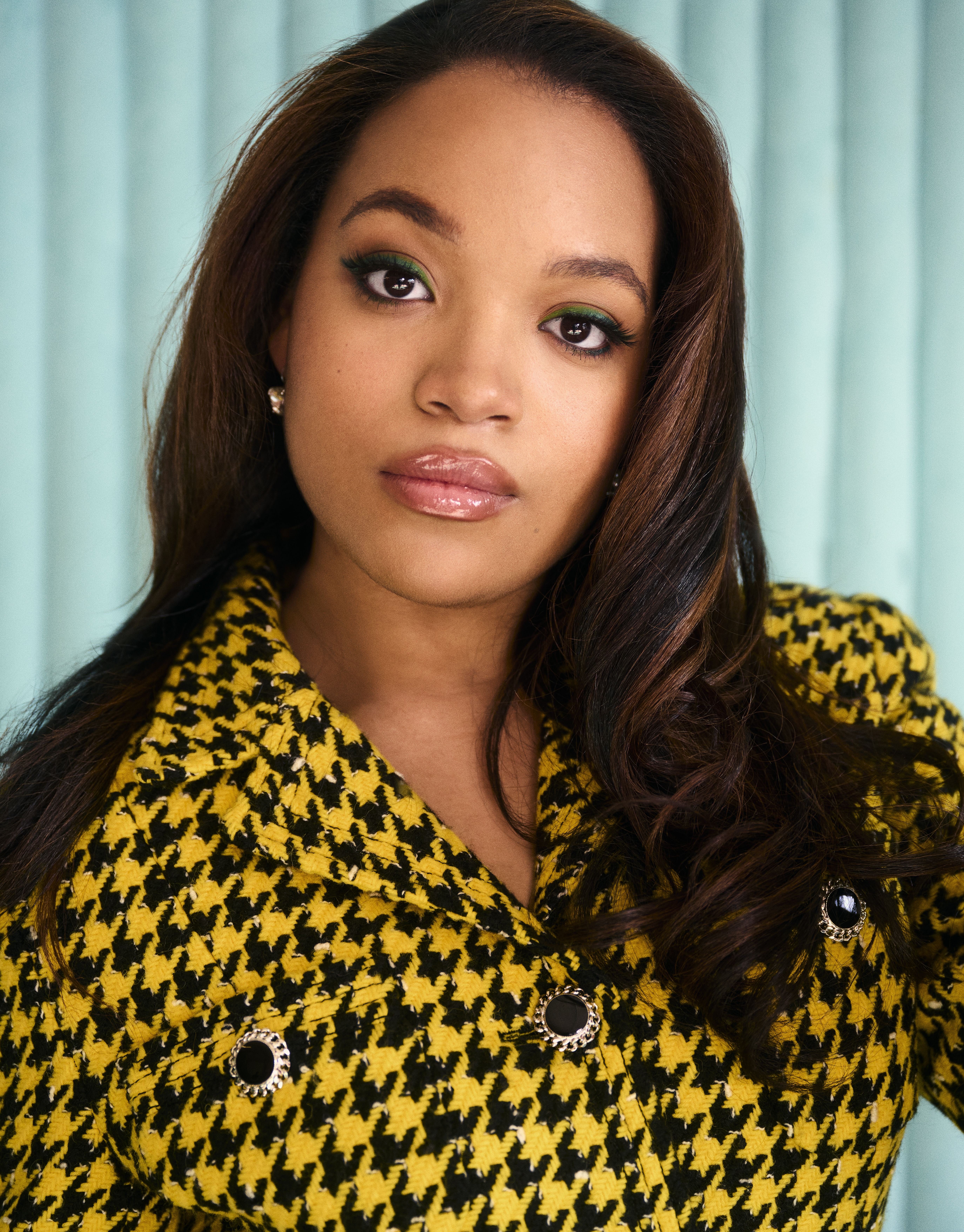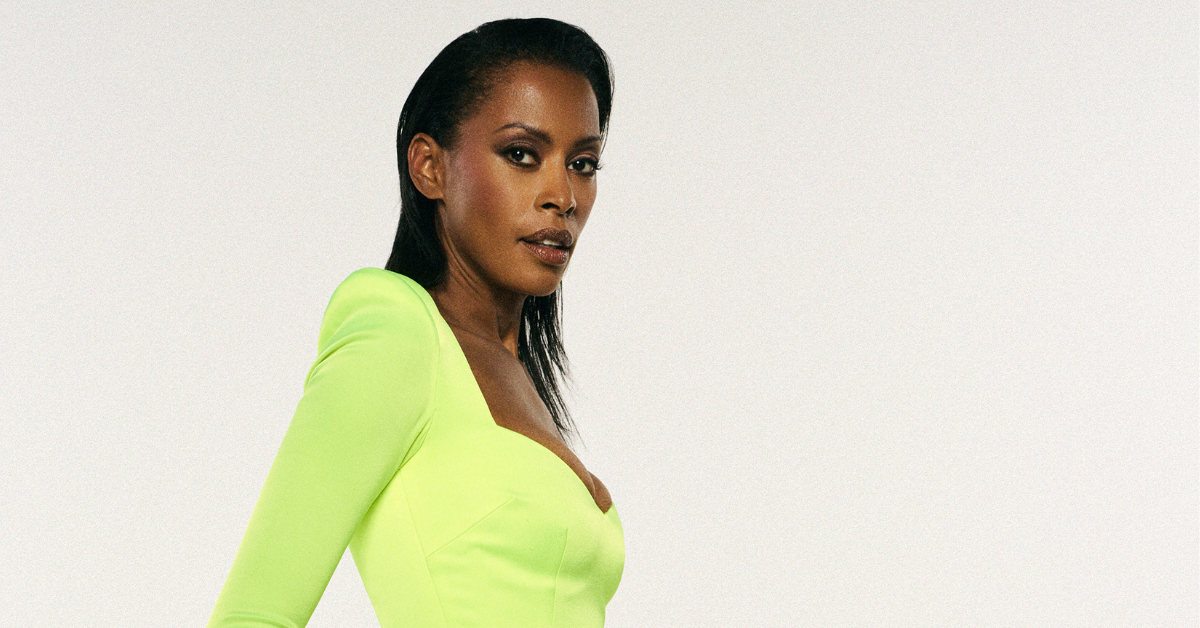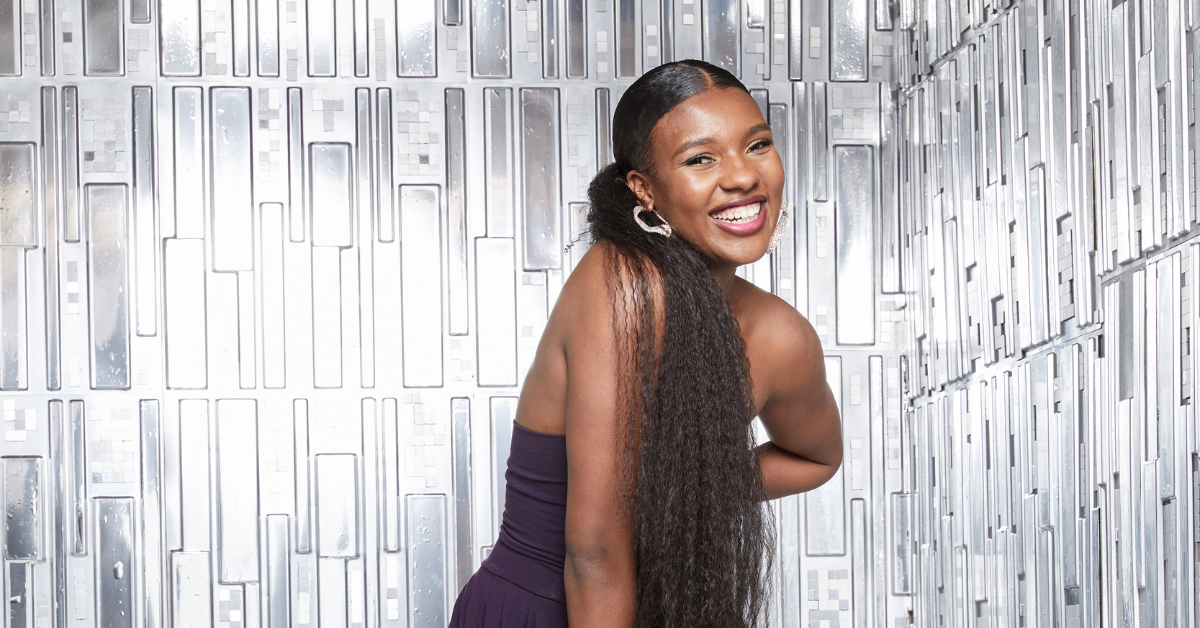From Netflix’s BEATS to Social Activism: Ashley Jackson’s Impactful Story
Ashley Jackson is a passionate advocate for equity, justice, and civil rights. She is an actress, writer, and producer who uses her platform to amplify important causes such as healthcare access, support for survivors of domestic sex trafficking, and food justice. Jackson’s passion for activism stems from her parents’ dedication to equity, and she draws from her own life experiences as a member of Generation Z. She made her acting debut in Netflix’s original BEATS, where she was mentored by luminaries like Uzo Aduba, Anthony Anderson, and Emayatzy Corinealdi. Jackson combines her love of activism with entertainment, channeling her interests into screenwriting and often the roles she commits to in acting. Recently, she has been involved in a campaign to raise awareness about sexual exploitation of underrepresented populations through social media.

Cox: Ashley Jackson, you are a gifted individual who is passionate about advocacy. You come from a family with a long history of activity. But I’d like to know where Ashley’s love for it stems from and what it means to her to be an activist.
Jackson: Fortunately, I have a front-row seat to my parents’ unwavering dedication to equity, justice, and civil rights. They have fostered my worldview and ignited my own advocacy. Working in the entertainment industry, I understand the power of authentic storytelling to uplift marginalized communities. As an actress, writer, and producer, I aim to become a cinematic force against forms of oppression like racism, sexism, and ableism. I also use my platform to amplify important causes, such as healthcare access, support for survivors of domestic sex trafficking, and food justice. Recognizing the intrinsic link between activism and politics, I engage in efforts that intersect with public policy to drive meaningful change.
Cox: You are an actor, writer, and producer; where do you get your passion for all of these things and entertainment?
Jackson: From a young age, I was captivated by the arts and inspired by icons like Phylicia Rashad and Raven Symone. I sang in school choirs, danced on teams, and performed in musical theater conservatory programs. I am passionate about singing, songwriting, playwriting, and acting. Debbie Allen became a pivotal figure in my artistic journey as I studied her multifaceted career as an actress, director, and producer. Observing the transformative power of her role as a producer on “A Different World” piqued my interest in producing. And watching “Girlfriends,” created and produced by my mentor Mara Brock Akil, solidified my dedication to screenwriting and intentional storytelling. As I prepare to attend the Peter Stark Producing Program at the University of Southern California’s (USC) School of Cinematic Arts, I am eager to continue exploring my artistic passions in a setting that will nurture and elevate my creative voice.

Cox: You made your acting debut as Niyah in Netflix’s original BEATS. How was your overall experience in your breakthrough role?
Jackson: Playing the character Niyah, the strong and sassy love interest to August, portrayed by Khalil Everage, shifted the trajectory of my career. On the set of “BEATS,” luminaries like Uzo Aduba, Anthony Anderson, and Emayatzy Corinealdi mentored me, imparting valuable wisdom about resilience and navigating the entertainment business. Filming in Chicago, where my dad resides, was nice because I was able to spend more time with him. I was also exposed to the unique culture of the city through weekend block parties and meetups with amazing people. While Niyah and I differ significantly, I embraced the teachings of my acting coach, Richard Lawson, drawing from personal experiences and research to authentically connect with her humanity. As my first feature film, “BEATS,” holds a special place in my heart, preparing me for future projects and cultivating connections with the cast and crew that I maintain to this day.
Cox: How do you combine your love of activism with entertainment?
Jackson:My storytelling and career are intertwined with themes of political advocacy and democratic politics. I’m also a dedicated viewer of shows like “The West Wing,” “The Diplomat,” and “Madam Secretary.” Although I don’t plan to pursue a political career at this time, I channel those interests into screenwriting and often the roles I commit to in acting. Drawing from my own life experiences as a member of Generation Z, my father’s involvement in politics and civil rights, and the knowledge gained from my mother’s college courses, including intellectual aspects of Hip Hop, political organizations, and the Black Power Movement, fuel my creative drive.

Cox: You are a part of some fantastic organizations and projects that are making a difference in the world. Please tell me about them and why you picked them in particular.
Jackson: Addressing systemic issues that affect underrepresented populations is of utmost importance to me. In high school, I learned about the tragic reality of domestic sex trafficking which led me to organizing donation drives for survivors. Currently, I collaborate with the National Center on Sexual Exploitation (NCOSE) to raise awareness on social media platforms about public policy initiatives aimed at eradicating exploitation. Recently, I spearheaded NCOSE’s “Lend My Voice” social media campaign, which highlights the devastating consequences of “full decriminalization” of the sex trade and promotes survivor-focused “partial decriminalization” efforts. The campaign encourages influencers and celebrities to share their platforms with survivors, shedding light on these critical issues. Moreover, my personal commitment to veganism has led me to collaborate with the wonderful organization PETA, specifically on matters related to food justice. I am passionate about PETA’s legislative work, redirecting subsidies for meat, eggs, and dairy towards incentives for grocers in food deserts to stock fresh, healthy, and humane vegan food options. PETA’s recognition that promoting vegan lifestyles must go hand in hand with leveling the playing field for marginalized communities resonates deeply with me. Through these collaborations, I strive to make a positive impact and contribute to a more equitable and just society.
Cox: You have a Spelman diploma! HBCUs have recently received more media attention. Why did you pick an HBCU, and how did it affect your growth as a student and prepare you for life after school?
Jackson: After finishing high school at the age of sixteen, I faced the choice of leaving home for college. Despite being admitted to Spelman College and other prestigious universities, I decided to begin my collegiate journey at California State University, Northridge (CSUN) to stay close to home. While I appreciated my time at CSUN, especially with their film department, I lacked a sense of belonging and knew that the remedy was “sisterhood.” So, when I turned eighteen, I transferred to an HBCU. Joining Spelman’s “illustrious” community provided me with unparalleled education, lifelong friends, incredible mentors, and a chance to feel “at home.” Additionally, balancing a full school schedule and filming movies during my time at Spelman taught me valuable lessons in work ethic while exposing me to brilliant Black women and esteemed faculty. I graduated as a Top Ten Graduate with Summa Cum Laude Latin honors, majoring independently in “African American Narratives in Cinema and Television” with an emphasis in Screenwriting, a feat made possible by Spelman’s first Independent Major, Stacey Abrams. Since graduating, I have experienced significant personal and professional growth, and I attribute much of it to my connections with Spelman, HBCUs, and my beloved sorority, Alpha Kappa Alpha, Inc.

Cox: You are also an outspoken vegan. Tell me about your vegan journey!
Jackson: I have been a vegetarian since birth. My journey with chronic illness, including Long Covid, spurred by the pandemic, led to the removal of dairy and gluten from my diet and subsequent veganism. While that shift felt like a natural progression, my research and education on other matters in the vegan community induced my activism. As a member of Generation Z, I am deeply concerned about our planet. The environmental impact of meat production, including deforestation and habitat loss, is amplified in comparison to a vegan lifestyle, which requires less land and contributes to sustainability in a world facing food and water insecurity. I also question the ethical cost of consuming certain products and recognize the harm inflicted on animals and workers in the industry. By being vegan, I aim to reduce my contribution to these harms and challenge mass production practices. As a “newbie,” I continue to make lifestyle changes to reflect vegan practices, but my choice to “eat vegan” is aligned with my desire to support animal welfare, address environmental concerns, promote ethical choices, and prioritize my own well-being (and the food tastes good!).
Cox: This generation, like you, are all about utilizing their voices and platforms to effect change. What do you intend to accomplish in your lifetime that will have a lasting influence on future generations?
Jackson: One of the accomplishments I hope to achieve in my lifetime is to elevate the fusion of art, social activism, and scholarship. Whether through films, music, literature, or other creative mediums, I will use my artistic endeavors to shed light on pressing social issues and provoke thoughtful discussions. I also plan to continue partnering organizations dedicated to social justice and using my platform to raise awareness about issues concerning the underserved around the globe. By aligning my work in the entertainment industry with my interests in academia and advocacy efforts, I hope to contribute to a society that values and embraces the transformative power of expression. I aim to inspire future generations to continue pushing the boundaries of artistic and intellectual exploration, leading to a more inclusive, enlightened, and compassionate world.
Photography Credit: Kelsey Hale





